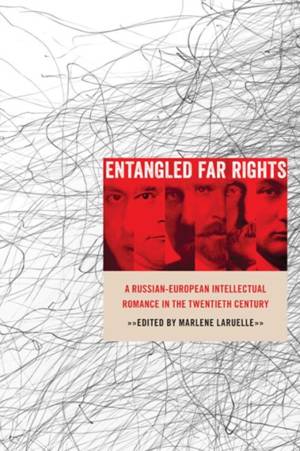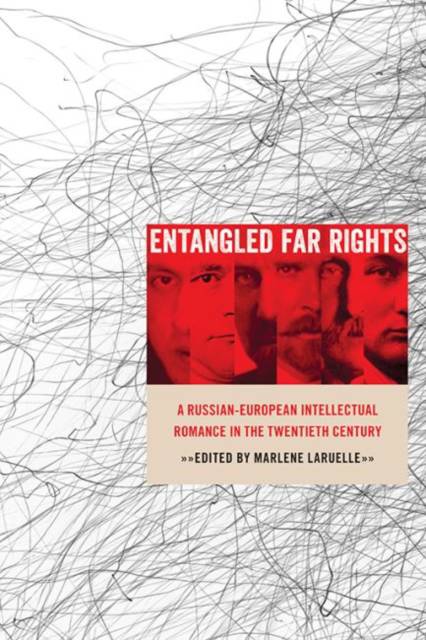
- Afhalen na 1 uur in een winkel met voorraad
- Gratis thuislevering in België vanaf € 30
- Ruim aanbod met 7 miljoen producten
- Afhalen na 1 uur in een winkel met voorraad
- Gratis thuislevering in België vanaf € 30
- Ruim aanbod met 7 miljoen producten
Zoeken
Entangled Far Rights
A Russian-European Intellectual Romance in the Twentieth Century
Marlene Laruelle
€ 83,95
+ 167 punten
Omschrijving
Since the Ukrainian crisis in 2014, Russia's support to the European far right--and to a variety of populist leaders more globally--has become a cornerstone of the West's perception of Moscow as a "spoiler" on the international scene. The fact that Russia's most fervent supporters are now to be found on the right of the ideological spectrum should not be a surprise. The European far right has always had Russophile tendencies, but these were obscured during the Cold War, when rightist politics were most of all anti-Communist. Entangled Far Rights traces the "intellectual romance" that existed between European far right groups and their Russian-Soviet counterparts during the twentieth century and accounts for their recent re-emergence.
Specificaties
Betrokkenen
- Auteur(s):
- Uitgeverij:
Inhoud
- Aantal bladzijden:
- 288
- Taal:
- Engels
- Reeks:
Eigenschappen
- Productcode (EAN):
- 9780822965657
- Verschijningsdatum:
- 6/11/2018
- Uitvoering:
- Paperback
- Formaat:
- Trade paperback (VS)
- Afmetingen:
- 150 mm x 226 mm
- Gewicht:
- 430 g

Alleen bij Standaard Boekhandel
+ 167 punten op je klantenkaart van Standaard Boekhandel
Beoordelingen
We publiceren alleen reviews die voldoen aan de voorwaarden voor reviews. Bekijk onze voorwaarden voor reviews.











